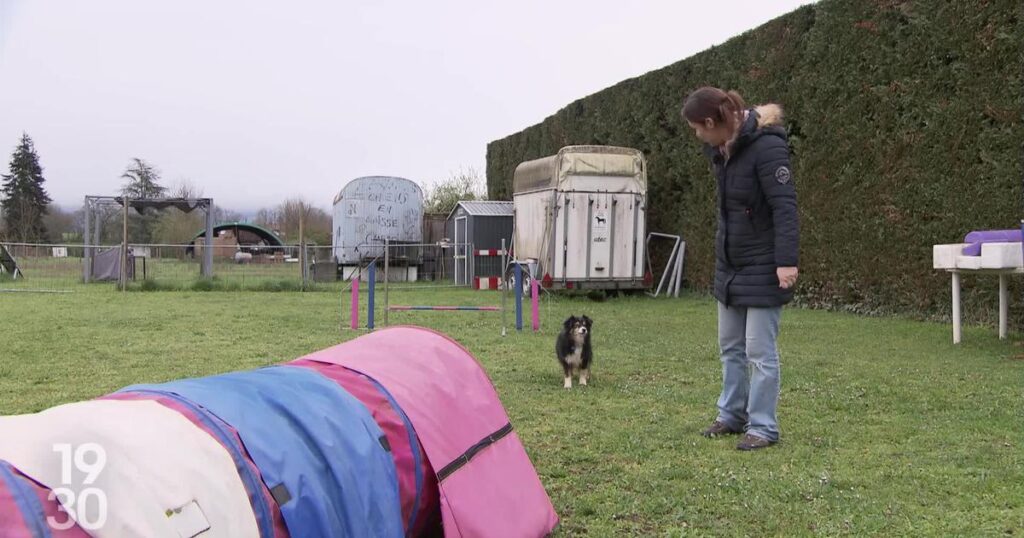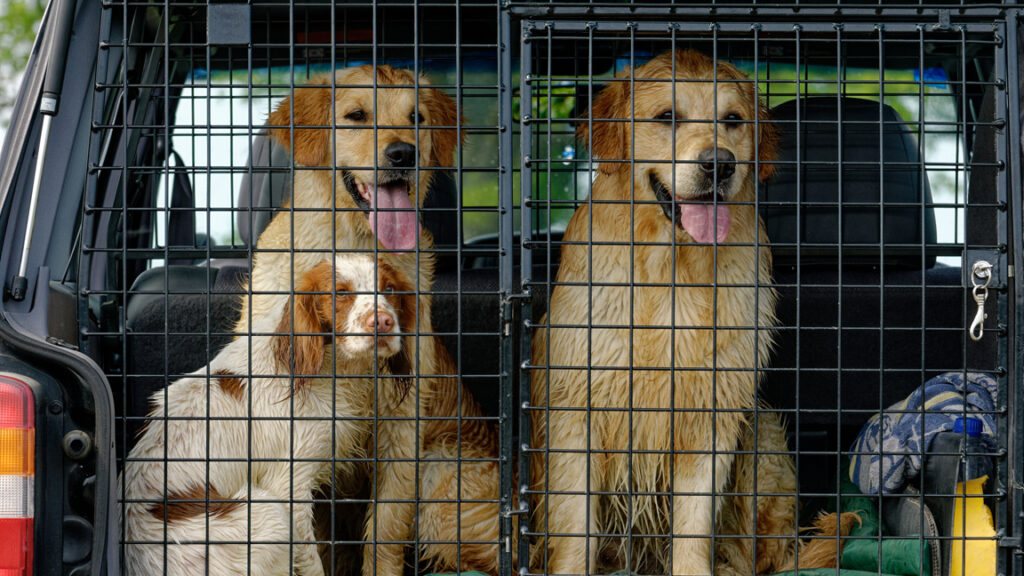
Can our female dogs and dogs understand the words we use? A new brain wave study, published Friday in Current Biology, suggests that hearing the names of their favorite toys activates these animals' memories of the objects they are associated with.
“This shows us that it is not a simply human faculty,” rejoices the co-author of the survey Lilla Magyari, researcher at Loránd-Eötvös University in Hungary.
The question of whether dogs understand words or a situation, such as the tone used or a particular context, has long been unresolved and science has not been able to provide clear answers.
In the past, several laboratory tests have demonstrated that these animals, with a few exceptions, are not capable of bringing back objects only after hearing their names.
For many people who are experts in the field, it is not really what we say to them but how and when we do it that stimulates them. For example, asking to go “get the stick” and seeing your dog come back with the piece of wood does not prove that the canine knows the meaning of the word “stick”.
Proof by brain imaging
For this news study, Lilla Magyari and colleagues used a non-invasive brain imaging technique on eighteen animals. Using electrodes placed on their skulls, the scientists recorded their brain activity. The masters and mistresses then gave the words corresponding to toys known to the animals and then showed them either the corresponding object or a different object.
After analysis, the research team discovered different patterns in the brain when the owner showed the corresponding object or not.
This type of experiment, used for decades on human beings, is considered proof of understanding of meaning and also has the advantage of not requiring a dog to retrieve the object to prove its knowledge.
“We found this result in fourteen dogs,” notes study co-author Marianna Boros. Which shows that this result is not just the result of “a few exceptional dogs”. Even the four who “failed” may simply have been tested on the wrong words, she adds.
The ability of female dogs and dogs to fetch a specific toy after hearing its name was previously considered a gift, says Holly Root-Gutteridge, an expert in dog behavior at the University of Lincoln in England.
For example, the famous border collies Chaser – which was the subject of a scientific studies – and Rico could find toys in a large pile just by hearing their names.
For the researcher, the new study “shows that many dogs learn the names of objects in terms of brain response even if they do not show it in their behavior”.
>> Read also: What if artificial intelligence allowed us to communicate with animals?
What about semantic understanding?
Clive Wynne, a dog behaviorist at Arizona State University, said he was “divided” on these results: “The article doesn't hold water when it tries to demonstrate what it calls 'semantic understanding'. ',” he believes, while praising an “ingenious” experimental device which makes it possible to test the entire “functional vocabulary” of dogs.
For example, Clive Wynne says he has to spell out the word “walk,” rather than saying it, lest his dog imagine he's going outside. He has no need, he says, to take such precautions with humans whose understanding of the word goes beyond simple association.
“Would Pavlov be surprised by these results?” asks the researcher, referring to the famous Russian scientist who demonstrated that dogs could be conditioned to salivate every time they heard the sound of a bell indicating meal time. “I don’t think he would,” he replies.
>> The project on a page from the Max Planck Institute: Finding Rico
sjaq and afp




